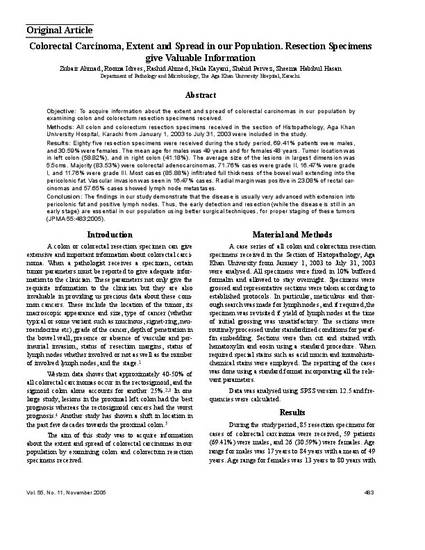
Objective: To acquire information about the extent and spread of colorectal carcinomas in our population by examining colon and colorectum resection specimens received.
Methods: All colon and colorectum resection specimens received in the section of Histopathology, Aga Khan University Hospital, Karachi from January 1, 2003 to July 31, 2003 were included in the study.
Results: Eighty five resection specimens were received during the study period, 69.41% patients were males, and 30.59% were females. The mean age for males was 49 years and for females 48 years. Tumor location was in left colon (58.82%), and in right colon (41.18%). The average size of the lesions in largest dimension was 5.5cms. Majority (83.53%) were colorectal adenocarcinomas, 71.76% cases were grade II, 16.47% were grade I, and 11.76% were grade III. Most cases (85.88%) infiltrated full thickness of the bowel wall extending into the pericolonic fat. Vascular invasion was seen in 16.47% cases. Radial margin was positive in 23.08% of rectal carcinomas and 57.65% cases showed lymph node metastases.
Conclusion: The findings in our study demonstrate that the disease is usually very advanced with extension into pericolonic fat and positive lymph nodes. Thus, the early detection and resection (while the disease is still in an early stage) are essential in our population using better surgical techniques, for proper staging of these tumors
Available at: http://works.bepress.com/zubair_ahmad/5/
